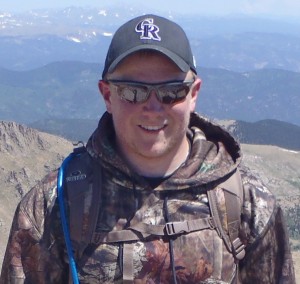Do you ever catch yourself staring at a particular photograph for longer than usual? Have you ever watched something that inspired you to take action? My job is to provide people with that content.
It’s my soul purpose to connect our members and beyond to a person or a place that is critically important to the Trout Unlimited organization. As the Senior Producer at Trout Unlimited, I am a photographer, filmmaker and producer charged with telling the Trout Unlimited story. Whether it’s the north coast of California where I’m focused on telling the story of school children and their innovative water storage or a campaign closer to home like Hermosa Creek or Browns Canyon. Each individual campaign allows me to meet and work with so many of the inspiring volunteers, staff and partners that do the work on the ground in their respective region.
I’ll never forget the first time I stepped foot into the field to start work on the Rio Grande del Norte National Monument campaign in northern New Mexico. It was a surreal scene walking up a windy mountainside with cameras in hand all to step back and watch as Gio Mondragon surveyed the proposed national monument with care and passion in his eyes. I still put myself on that very mountain from time to time and remember the love for the land that Mondragon’s have and how it’s up to me to continue sharing these incredible stories in order to protect the land that the next generation will inherit.
I still consider myself very fortunate to have my start in newspaper photojournalism. I’m blessed to have told stories in some of the most interesting places. Just a brief sampling of my work history includes being the team photographer for the Colorado Rockies baseball club, ESPN, the New York Times, the Rocky Mountain News and the NCAA.
This year I’m focused on a number of topics for Trout Unlimited ranging from the Good Samaritan Act in southwestern Colorado, to wild steelhead in the northwest and on up to the Smith River in Montana to name a few places. Each place will teach me something fascinating about the landscape or people that I have the good fortune of spending my life living around.
At the end of the day if you zoom in far enough there are thousands of rich stories waiting to be told in so many of the incredible places that Trout Unlimited works.
To look into some of the projects I’ve had the privilege to work on for Trout Unlimited head over to our Vimeo page.
---Josh Duplechian, Senior Producer, Trout Unlimited











